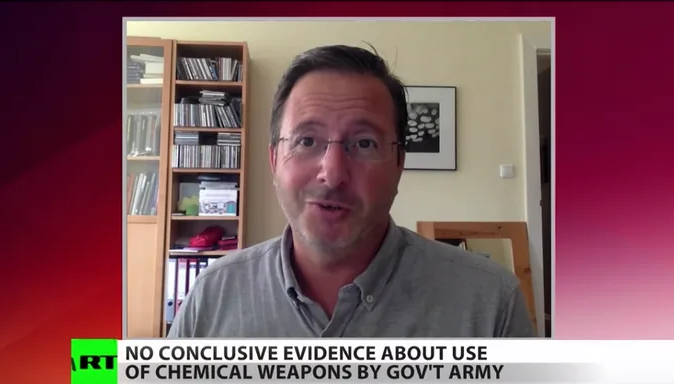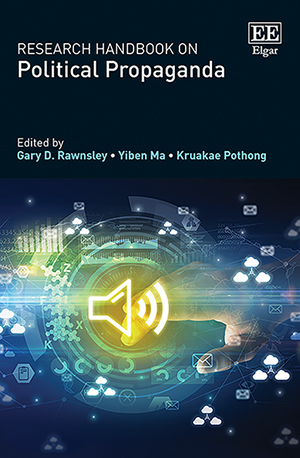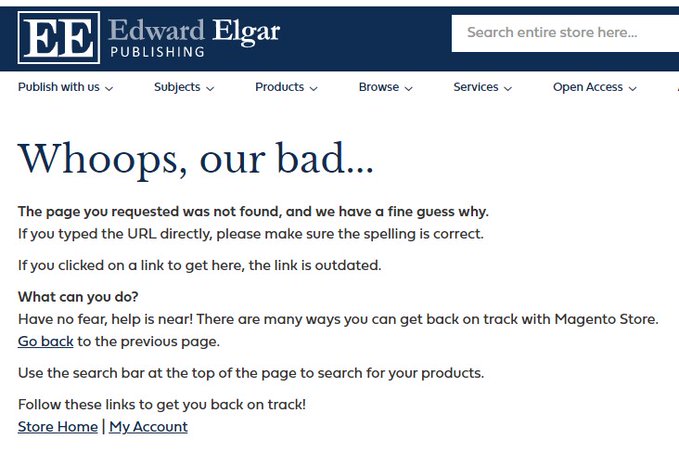
The Research Handbook on Political Propaganda is a new book described by its publishers as "a crucial resource for both scholars and students". Optimistically priced at £195 ($258), it has 29 chapters by different authors presenting academic studies of propaganda in a variety of countries.
There is one chapter, though, that stands out from the rest ... for the wrong reasons. It begins by defining propaganda as "highly manipulative and deceptive persuasive communication" – which is also a fair description of the chapter itself.
The chapter focuses on "war propaganda" in democracies, and cites media treatment of a small group of university professors and researchers as one example. Known as the Working Group on Syria, Propaganda and Media, they denied chemical weapons attacks by Syria's Assad regime (despite an abundance of evidence), sought to cast doubt on Russia's involvement in the poisoning of Sergei and Yulia Skripal and promoted numerous conspiracy theories.

In essence, they were spreading propaganda dressed up as academic research – and the book chapter itself is a further example of this. It gives a misleading impression that members of the group were unfairly maligned, simply for expressing views about Syria that differed from those of the British government, and it presents them as victims of a "smear campaign" which, according to the author, was part of an "organised attempt to manage dissent".
The chapter's author is Piers Robinson, formerly a professor at Sheffield University, and a footnote explains that its content is "drawn largely from ongoing work being conducted by members of the Working Group on Syria, Propaganda and Media". However, readers would need to do some further digging among the cited sources to discover that Robinson was convenor of the Working Group and one of its founders. A biographical note in the book makes no mention of his role in the Working Group or, for that matter, his frequent appearances on RT, the Russian propaganda channel.

The Working Group has been heavily criticised in the Times newspaper and on the HuffPost website. Many of its claims have also been debunked by Bellingcat but most of the mainstream media have simply ignored it. Robinson, however, suggests the group was targeted in a "coordinated" and "organised" campaign – and says I was the person who started it:
"Almost as soon as the working group had been established, and before it had produced any substantive material, the former Guardian journalist Brian Whitaker had written and blogged a series of articles attacking various members of the working group as 'conspiracy theorists' or 'Assadists'."
The way it happened was pretty straightforward. While browsing the internet I had come across an article by Robinson which blamed western powers for the war in Syria and claimed, on the basis of some very dubious evidence, that they had been plotting it for years. That kind of nonsense isn't unusual on the internet but I hadn't heard of Robinson previously and was alarmed to find he was a university professor teaching students of journalism. Checking for other things he had written, I discovered the Working Group's website – which rang further alarm bells. I then wrote a blog post about it.
|
Comparing the group's stated aims with articles written by group members showed that it was operating under false pretences. Its website promised "rigorous academic analysis" and claimed to be countering disinformation with "reliable, informed and timely analysis for journalists, publics and policymakers".
In reality, though, it was an activist group whose "rigorous" analysis dismissed any evidence that didn't fit its political line. One of its members had produced a ludicrous article using probability theory to claim "overwhelming" evidence that the sarin attack on Ghouta in 2013 was not carried out by the regime but had been “a managed massacre of captives” by rebels. Conveniently, the probability calculations ignored the fact that the regime possessed sarin while the rebels almost certainly had none.
The group's use of academic rigour was also highly selective when it came to media reporting of the war. Members were generally very critical of mainstream media in the west but uncritically praised a handful of journalists whose views they agreed with.
A more detailed acccount of the Working Group and its activites can be found here.
There is no indication that the editors or publisher of the Research Handbook on Political Propaganda were aware of Robinson's background when they accepted his contribution. It seems more likely that they simply didn't check.
● UPDATE, 28 December 2021: The book has now been removed from the publisher's website. Clicking on the original link gives this result:


 RSS Feed
RSS Feed

